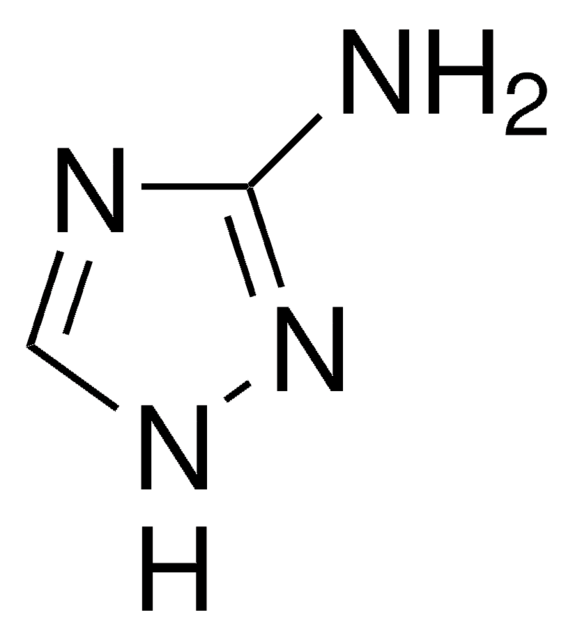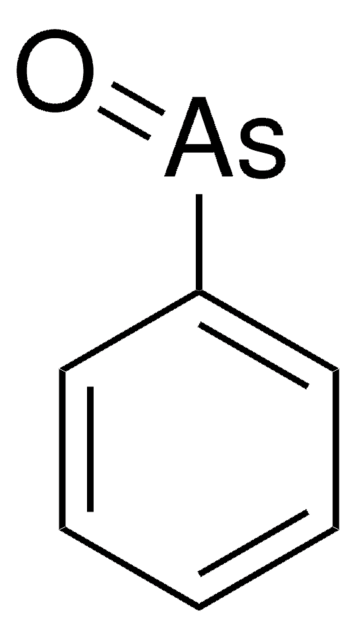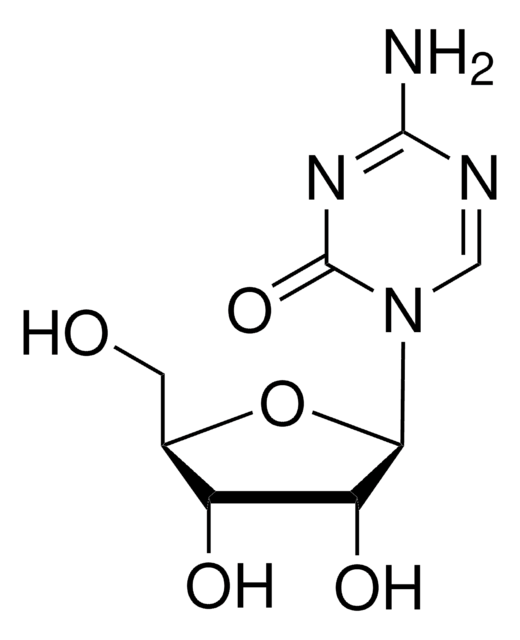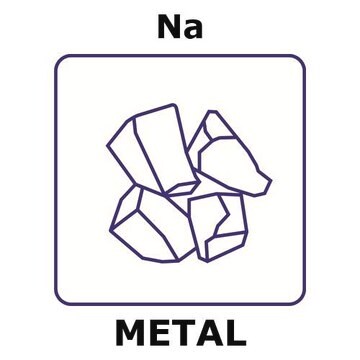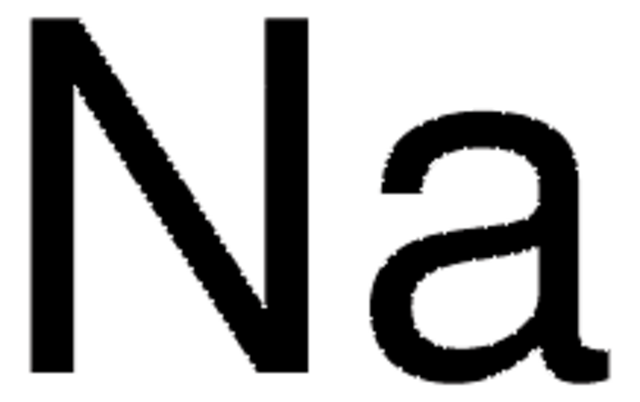679909
Potassium
cubes (in mineral oil), 99.5% trace metals basis
Sign Into View Organizational & Contract Pricing
All Photos(1)
About This Item
Empirical Formula (Hill Notation):
K
CAS Number:
Molecular Weight:
39.10
MDL number:
UNSPSC Code:
12141804
PubChem Substance ID:
NACRES:
NA.23
Recommended Products
vapor pressure
0.09 mmHg ( 260 °C)
Assay
99.5% trace metals basis
form
cubes (in mineral oil)
reaction suitability
reagent type: reductant
resistivity
6.1 μΩ-cm, 20°C
bp
760 °C (lit.)
mp
64 °C (lit.)
density
0.86 g/mL at 25 °C (lit.)
SMILES string
[K]
InChI
1S/K
InChI key
ZLMJMSJWJFRBEC-UHFFFAOYSA-N
Looking for similar products? Visit Product Comparison Guide
Application
Combines under pressure with silver metal to form 2 new compounds: K2Ag and K3Ag.†
Quantity
1 cube = ~20g
Signal Word
Danger
Hazard Statements
Precautionary Statements
Hazard Classifications
Eye Dam. 1 - Skin Corr. 1B - Water-react 1
Supplementary Hazards
Storage Class Code
4.3 - Hazardous materials which set free flammable gases upon contact with water
WGK
WGK 1
Flash Point(F)
Not applicable
Flash Point(C)
Not applicable
Personal Protective Equipment
dust mask type N95 (US), Eyeshields, Gloves
Choose from one of the most recent versions:
Already Own This Product?
Find documentation for the products that you have recently purchased in the Document Library.
Customers Also Viewed
Nicole Schmitt et al.
Physiological reviews, 94(2), 609-653 (2014-04-03)
About 10 distinct potassium channels in the heart are involved in shaping the action potential. Some of the K+ channels are primarily responsible for early repolarization, whereas others drive late repolarization and still others are open throughout the cardiac cycle.
Glucose-insulin-potassium revived: current status in acute coronary syndromes and the energy-depleted heart.
Alexandra N Grossman et al.
Circulation, 127(9), 1040-1048 (2013-03-06)
Jordan E Bisanz et al.
Applied and environmental microbiology, 81(15), 4965-4975 (2015-05-17)
The nutritional status of pregnant women is vital for healthy outcomes and is a concern for a large proportion of the world's population. The role of the microbiota in pregnancy and nutrition is a promising new area of study with
Stefan D Anker et al.
European journal of heart failure, 17(10), 1050-1056 (2015-05-27)
Hyperkalaemia in heart failure patients limits use of cardioprotective renin-angiotensin-aldosterone system inhibitors (RAASi). Sodium zirconium cyclosilicate (ZS-9) is a selective potassium ion trap, whose mechanism of action may allow for potassium binding in the upper gastrointestinal tract as early as
David K Packham et al.
The New England journal of medicine, 372(3), 222-231 (2014-11-22)
Hyperkalemia (serum potassium level, >5.0 mmol per liter) is associated with increased mortality among patients with heart failure, chronic kidney disease, or diabetes. We investigated whether sodium zirconium cyclosilicate (ZS-9), a novel selective cation exchanger, could lower serum potassium levels
Our team of scientists has experience in all areas of research including Life Science, Material Science, Chemical Synthesis, Chromatography, Analytical and many others.
Contact Technical Service




